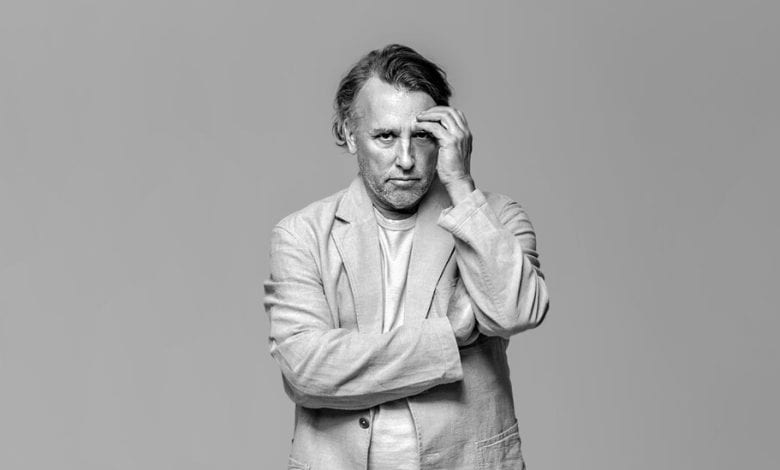Richard Linklater Sees the Killer Inside Us All

Richard Linklater’s latest movie, “Hit Man,” is a bit of a departure for the director, who has made some of the most acclaimed and influential indie films of the last 30-plus years. The movie, which stars the ascendant Glen Powell, is about a mild-mannered college professor who has a side gig with the New Orleans Police Department, setting up stings by posing as different hit men. It’s a tight, stylish and sexy thriller, with some twisted romance added in, from a filmmaker better known for the ambling rhythms and gently existential tone of beloved classics like “Dazed and Confused,” “Boyhood” and “Before Sunrise” (not to mention his great comedy “School of Rock,” which exists in a category of its own).
Listen to the Conversation With Richard Linklater
David Marchese talks to the acclaimed director about his new film “Hit Man” and life’s big questions.
But alongside its pop charms, “Hit Man” still manages to sneak in a provocative exploration of one of Linklater’s pet themes: the nature and malleability of personal identity. It’s also, as so many of the 63-year-old’s films are, a movie that understands the pure cinematic pleasure of watching smart, inquisitive people converse — exploring ideas and philosophies, making one another laugh, testing one another.
It’s the talking that made me fall in love with Linklater’s films, which he almost always writes or co-writes. (He co-wrote “Hit Man” with Powell.) The way his vivid, relatable characters discuss the big questions, with so much soul and hang-looseness, free from any highfalutin airs, has long been something of a north star for me as a movie lover and as a talker. The searching, openhearted discussions in Linklater films are the kind of conversations most meaningful to me in my own life and work. I don’t want to make too big a deal of it, but I can see a pretty clear line from adolescent me sitting around watching all the chatty oddballs in “Waking Life” and “Slacker” to middle-aged me, here and now, speaking with Richard Linklater — who, surprise surprise, sounds a lot like a character from one of his movies.
I’m curious how you think about your identity at 63 years old. Do you feel as if it’s fixed? Do you still have formative experiences? It’s the kind of thing I’ve thought a lot about my entire life: What could transform me? I was probably more in the camp of we’re fixed, give or take whatever little percentage around the edges. So I was interested in this notion lately that, oh, you can change, the personality isn’t fixed. That seems current: this notion of self and identity, gender. I sort of like that it’s all on the table, that everybody’s thinking you kind of are who you say you are. To me, that’s interesting.
Do you have a lot of different identities? Probably as many as anybody else.
What are the different ones? Well, if you get me on a Ping-Pong table — my third rail is athletics. I feel this little rush of competitiveness, which I really don’t have in the world of art at all — or my life even. I’m the guy looking at the world through glass. I was always the guy in the corner thinking about everything. I’m an introvert who gets put in extroverted situations occasionally, and I can play that role. But roles I currently play? I don’t know. It’s nice to care less about it as you get older.